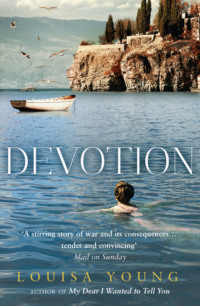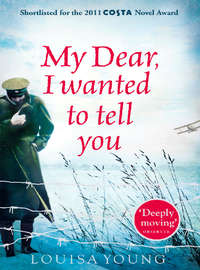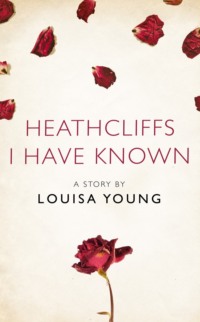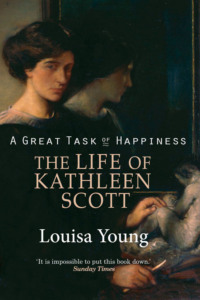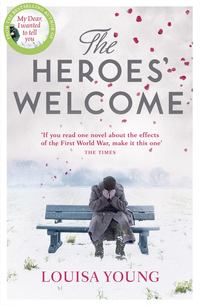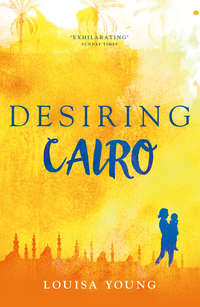
Полная версия
You Left Early: A True Story of Love and Alcohol
That night, he made me laugh so much. The cutting through the crap – he wouldn’t just cut to the chase, he would cut to three chases at once, going too far too fast in all directions and assuming that everyone else wanted to go there too. Which I did. He seemed to carry a kind of truth within him, an honesty beyond that of less intense people. This he never lost. Anyway, we went on to the balcony, and later we went back in a cab to the cheerful little house I lived in. A cab! I was the posh one, but I couldn’t afford cabs. We stopped on the way at a kebab shop on Queenstown Road, and Robert kept the taxi waiting. There was a group of skinheads at the back: Ben Shermans, Doc Martens, overhead strip lighting. They made Robert nervous, but it was me they laughed at, with my very long hair – ‘Oi, skin’ead!’ they yelled at me.
I remember that the wall between my bedroom and the back room was half dismantled; I’d taken down the plasterboard and the strips of lath, leaving only the wooden struts, which I used as a kind of tiny unsatisfactory shelving system. I had a single bed. I remember he was very thin, and the sex was revelatory.
He left the next afternoon, and vanished off the face of my earth. I remember I was hurt and mortified. For months. I did not understand – and still don’t – how a brilliant night with someone could possibly not lead to wanting another brilliant night with them, and another, and another. Seriously, why? I didn’t understand how you could do all that together, and then – nothing. It made me a fool and him a bastard. I hated being a fool and I hated him being a bastard.
Many years later, we discussed it. He said, ‘You could have rung me. You’re a feminist.’ But girls didn’t ring men in those days. Even educated feminist London girls. Politics was all very well, fear of rejection was something else. And there were none of the modern alternatives – a Facebook friending or a witty little tagged snap on Instagram of something of mutual interest. The telephone was all you had. Or a letter, but Christ, a letter! The permanence! No, it was the telephone or nothing, and that meant the possibility of having to talk to his mother, or his flatmate, or, if you did get hold of him, of the embarrassed silence. Boys, of course, had to face this great compounding pyramid of potential embarrassment all the time. (There was a sub-clause whereby if a girl was more attractive than the man she was allowed to ring, as long as she was prepared to take the risk that as the man was less attractive, he might be over-awed, or as we called it, ‘scared of you’. But this never worked in practice, because then as now most girls thought themselves unattractive, and even if they didn’t they weren’t allowed to admit it, for fear of being labelled ‘full of herself’. No, ringing a man you fancied meant you were desperate.)
We – girls – well, I – believed that the boys knew what they were doing. I believed they had thought about it, and were doing it on purpose. I assumed they had all the power. By assuming that, I actually gave them all the power. I didn’t learn that for another twenty-odd years. I wish I had rung him. Everything might have been different. But no. I sentenced myself to a ludicrous punishment: burn with desire, and keep quiet about it.
‘What would you have done if I’d rung you?’ I asked.
‘I’d’ve loved it,’ he said. ‘I’d’ve been flattered.’
‘But why didn’t you ring me?’
‘Because I was a little twat.’
*
Many years later, in Primrose Hill with Emma, she pointed out the flat where she used to live. It was on a different street. It didn’t look out over Primrose Hill. It had no balcony.
I pointed out the balcony I remembered, a few streets away. She had never been in that building.
But I remember. There had been a brightly patterned rug hanging on the wall on the left as you went in; reds and oranges.
‘Hm.’ She looked doubtful. Neither of us knew if we remembered or not.
And then in November 2015, poking around in my own past for structure for this book, I found this. (The previous entry ended: ‘I’m going celibate’.)
From my notebook: 20 December 1982:
Friday night to a party full of precious hunch-shouldered Oxford boys working on modern TV channels.
‘Oh goody,’ Emma cries, ‘my pianist has arrived. Such a shame we don’t have a piano.’
‘Who is your pianist?’ I enquire.
‘Oh he’s wonderful, he comes from Wigan and he’s …’ Rob Lockhart, of course. Who was being his usual sweet dirty charming self, uttering his usual friendly lascivious greetings. ‘One of these days someone is going to take you seriously,’ I say.
‘I wish you would,’ he replies.
‘OK, I do.’
‘What, now?’ he says.
‘Perhaps a little later,’ I suggest.
‘Excellent!’ he says.
And so we check up on each other periodically and then run off up Primrose Hill in the frost and kiss in a most fourteen-year-old haze of clothes and cold and party smells. He slips one shoulder out of my clothes and kisses my throat, and we run down the hill and into a taxi and take the piss out of each other all the way to the Queenstown Road.
‘I’ve changed my mind,’ he says. ‘You see I went off the pill last week and I’ve got my period.’ (True of me, but not of him.) ‘And I’ve just broken up with someone and I’m still very depressed about it …’ We bought kebabs and chocolate among the skinheads. ‘But could you bear to wake up to this face on the pillow tomorrow morning, or will it be just one of the worst figments of your hangover?’ And all through, the feeling that we don’t have to do anything, we’re just mucking about together.
At home he played and I sang Cole Porter, drank tea, I went to the loo, he hopped into bed. I grew a little shy as we sobered up, towards three. ‘Are you going to sit there and read me a bedtime story and then creep off somewhere else?’ he asked. Nope.
I rang Tallulah today as I felt she ought to know. ‘Well one of us had to before he lost his looks,’ she said. ‘Was he good?’
‘Yes.’
‘I thought he would be.’
He was. It was. Complete and revitalising and full and bloody nice. Literally, actually – ‘I’ve bled all over everything, oh dear,’ I say.
‘Sooner you than me,’ he says. ‘You’re meant to. I don’t mind if you don’t.’
In the morning he said, ‘Well, what do you reckon to the face then – weedy, anaemic, pathetic …’
The house, including Claude looking for socks, Rory looking for Kevin, Kevin looking for gas fittings to build the bathroom with, came and went about their business. We got up around five, knowing that as a one-night-stand we couldn’t push it to the second night, but could make the first last as long as possible. He slept very very deep, very long, very quiet. Hardworking boy. Talking about music, first and last. ‘What’s the point of music? I’ll tell yer. Order from chaos. You don’t know where you’re being taken. But when you get there, it’s all all right. Of course it’s not so effective if there’s not an interesting route taken, enough chaos on the way, and that’s why Mozart is so fucking dull, it’s all order, nothing but fucking order …’ And food. ‘I’ll take you there,’ he says, of a Thai restaurant. I quite wish he would. I quite want more, of course, but
i) I’m celibate
ii) I don’t want a boyfriend I want love
iii) If I did it wouldn’t be Lockhart
iv) You don’t get love from one-night stands
v) (iii) and (iv) vice versa.
So we parted on the corner with a friendly peck and a see-ya, and that’s it. It has cheered me up no end, so much I did two dance classes on Sunday.’
The notebook continues with seeing my friend off to Hong Kong, having breakfast in bed with my housemates Claude and Berny, band rehearsal, washing the sheets, a long talk with Tallulah where she says that he wasn’t actually planned as the father of my kids but that evidently a good time was had by all. ‘I have the obvious leaning towards Lockhart but the head says no’ – and then: ‘Lockhart called to say don’t cash the cheque yet and he’ll be in touch when he’s back from Christmas in Wigan’.
He called?
All that resentment about not ringing was about nothing? What, I somehow made that up?
And then, a few weeks into the New Year: ‘Tonight I had dinner with Lockhart. Nice. We took a taxi to Queensway because he is so thin that he couldn’t take the cold.’
I had been totally maligning him as a discourteous Lothario, for decades. He was a courteous Lothario, and by this evidence so was I. In this contemporary account I am giving every impression of not particularly wanting to continue our liaison. I have rewritten history. Hmm. Thank you, memory.
And I’m wondering – why was there a cheque? My mind leaps in to assist: perhaps the cabbie wouldn’t have taken a cheque, so I paid cash and Robert, insisting on paying the fare, gave me a cheque. That makes sense. It must have been that.
Dangerous phrases, ‘that makes sense. It must have been that’. Armed with those phrases a passing thought can march off into the back of your head and set up in its pomp as memory, as truth even, claiming through the passing years all the rights and privileges of those titles, to which it is not, actually, entitled. It can permeate a person’s overall idea of what their life has been.
So, practically the only thing my memory got right was that it was Emma’s party, it was Primrose Hill, there was a taxi and skinheads. I’m really sorry not to have looked at the notebook for thirty-five years, not to have had the chance to read it to him, and have that ‘I wasn’t a bastard! You weren’t a fool!’ conversation, in which he would have got to say it was all my fault. How he would have laughed.
And then I think again. Well. When, exactly, did I rewrite this history? Was I, perhaps, lying to my notebook, with all that cavalier one-night-stand stuff? Was that my pride? The ‘I know he won’t want me so I’ll not want him first’ approach?
I have no idea. But yes, of course that is possible. Probable, even.
Perhaps it was after the dinner that he didn’t ring.
And now I’m rewriting it all over again; anecdotalising, shifting perspectives on long ago, making excuses, looking for reasons, searching for meaning, wishing.
They say you don’t remember what people said, or what they did, but you remember how they made you feel. I would adjust that a little. You remember that they made you feel.
*
There’s his phone number in the back of a notebook: 720 5399. But I didn’t see him for a few years. Tallulah broke up with Simon and moved to New York; I was half in love with loads of other people.
There’s another party I do remember: Oscar Moore’s, in a snooker club in King’s Cross: very dim and low-ceilinged, smoky and so forth as things were then. Robert was wearing a Wigan Rugby League rosette: cherry red, though I was not familiar with the term then. In a move of pure attention-seeking, I stole it off him. He was quite drunk in a cheerful way and didn’t really notice, until he saw that I had it pinned to the back pocket of my jeans, whereupon he chased me all round the room demanding to know why I had never told him of my passion for rugby league, and Wigan in particular, with not the foggiest that it was his rosette I was sporting, and that I was trying, with considerable lack of either clarity or effect, to express thereby my deep attraction to him.
Anyway, he left, with a group of others, and I stood on a rainy corner in King’s Cross with the rosette. I think that’s what happened.
Chapter Three
London and Wigan, 1970s
A grand piano’s feet take up only a tiny area: three indentations in the carpet, each the size of a conker, cradling a brass ball clad in a brass foreskin attached at an unlikely angle, like a stallion’s ankle, to a rising pillar of polished hardwood. Very small, to hold so much weight, and cover so much area: a superior crate the shape of Africa, hollow yet full. With the solid wing raised it shows the heartstrings within, laid in green felt across swirls of miniature golden architecture, and the internal teeth, the hammers coming up from below, sharks from the darkness to bite and bump the strings; dampers above swooping down to see them off every time.
Robert’s Bechstein, as long as Rachmaninoff was tall, his father’s before him, lives with me now. (I smile as I write that. To Robert, saying a thing ‘lived’ somewhere was an unforgivable anthropomorphic poncey fuckin’ southern bourgeois affectation.) Underneath it are boxes and suitcases containing the entire history of Robert’s family. It has been my job to poke around in them, sorting things out. I find a brown paper-covered booklet, costing 30p, 15p if sold on Saturday only: the programme of the Wigan and District Competitive Music Festival, 1972, affiliated to the British Federation of Music Festivals, of which Her Majesty the Queen is patron. It smells of coal-dust and rain, and opens with a message from the mayor, who with the mayoress hopes to see the festival well supported. It lists the patrons, the areas which count as ‘local’ – Abram, Aspull, Billinge, Ince, Orrell, Standish, Skelmersdale, Holland, Chorley. Perhaps it is in fact these place names which smell of coal-dust and rain. It lists the scale of marks (for piano: accuracy of notes and time, technique, fluency, pace, touch, expression, interpretation); the trophies and medals available and who they are in memory of, the general regulations, appreciations, thanks, and the policy for receiving suggestions. There are ninety-nine classes, with up to twenty-five entrants in each. Choirs, recorder solo, folksong, violin, instrumental ensemble, organ, sight-reading, girls’ vocal duet. Thirty-six ten- and eleven-year-olds play ‘Ship Ahoy!’ by Arthur Pickles on the piano.
In Pianoforte Solo (ages thirteen–fifteen), Robert Lockhart, turned thirteen a week earlier, plays Debussy’s 2nd Arabesque, and comes first with 91 points. He wins £1.65, and a stiff certificate with a gold, red and green coat of arms. The following night he comes back to hear Pianoforte Solo (open), and marks what he hears. His marks are a little harsher than the adjudicators’ and his observations, in tiny blue biro, are precise. Betty Wilson was slightly too temperamental in her Dohnányi; Richard Eastham lost all movement in his La Fille aux Cheveux de Lin. Alison Cratchley’s rubato was not up to scratch, though otherwise her Bartók was superb. ‘Not delicate,’ he writes. ‘Dotted notes not clear’; and ‘Too much Chopin style for Bach’.
I have Robert’s little red Letts diary for 1969, when he was ten: lists of rugby players in pencil, and a few entries in splatty blue fountain pen: ‘Grandpa just out of bed been ill. Grandma in bed now.’ ‘Play with train practise putting hippy wig on.’ I have photographs: tiny 1960s black-and-white ones with scalloped edges, carrying all the freight of the out-of-focus faded technology of the past. There he is: a fat baby in incredibly tidy clothes with smocking across the front, chortling. With an ice cream, in Blackpool. Aged about seven on Coniston Avenue in Wigan, with a cricket bat and knobbly knees under baggy shorts. Hurtling towards a finishing line, when he was the second fastest boy in Wigan. With his four plastic horses hitched up to the Bonanza covered-wagon playset. There at the piano with his father, John.
‘My parents, John and Pat, were deemed to be a glamorous couple in their lower middle class (for want of a better term) milieu,’ Robert wrote, much later, in his rehab papers. ‘He a travelling salesman with a souped-up Ford Anglia, she a hairdresser.’ John, charismatic, grumpy, lovable and extremely musical, developed a form of agoraphobia which rendered him incapable of leaving his home town. If he drove ten miles from the town centre he would start shaking, and have to turn around. It happened once during an outing to Manchester to see a special railway yard, for which permission had had to be sought. Robert and his friends were very excited to go, but by the time they got to Longsight Depot John had what we would now call a panic attack; Robert was embarrassed, his pals in the car didn’t know what to say.
John had been a choirboy at Wigan Parish Church and knew everybody in the town. He was once seen weeping in uniform – National Service – at Wigan Casino, in the early fifties, out of unrequited love. As a young man he’d made a record in Norman Leather’s record-yourself studio. ‘Johnny Lockhart’ plays a jazzy, elegant piano and sings in a lustrous baritone the smooth Eddie Fisher song ‘When I Was Young’. He must have recorded it for Pat; they married in 1954, the year after the song came out: elegant, beautiful, a satin dress, a dress suit. It’s from another world, a Terence Davies world of face-powder and Ford Anglias, a Northern world that I never knew, with a lingering G at the end of my own surname, Young, a way I never heard it pronounced before I met Robert. It’s the voice of a man I knew and loved. Not that we pronounced the word love the same either.
John, young, looked like Alain Delon in a raincoat, on a bridge; older, like Michael Caine in the heavy glasses. He stopped drinking overnight in his early forties, but smoked tremendously. Robert called him the Owl of Ormskirk, because of the specs on the very tip of his big nose, always just about to fall off. Or, Pop Lockers. Pat, Robert’s mother, had the maiden name North which was already funny because she was from the South. She was blonde and pretty and ran a hairdressing salon in their front room in Coniston Avenue, where Robert was dandled by the ladies, played at their stocking-clad, high-heeled 1960s feet, listening as they chatted, absorbing their affection and glamour. Later Pat worked on the beauty counter at Boots. ‘Not quite Elizabeth Taylor and Richard Burton, but never mind,’ Robert observed. I never met Pat; cancer got her before I made it north. Robert could be dismissive about her, which made me want to talk to her all the more. It must have been quite something being the woman in a household made up of John and Robert. They all played the piano, but Pat, who was not a bad player either, never got near it because Robert or John was always on it.
‘I was a relatively happy child,’ Robert wrote, ‘successful academically and at sport, plenty friends … I didn’t think it odd that my dad often got home from “work” at ten p.m. ’
John had a girlfriend called Lily Glinka, an anorexic Russian secretary who was afraid of the wind. John took her out on to Southport Sands to try to cure her. Later there was another, Jenny, who loved horses. Robert knew about these things. He and John always talked. And he was woken by the arguments in his parents’ bedroom late into the night. His mother was protective but eventually she too ‘succumbed to an affair’.
Robert was twelve or thirteen when the family fell apart. John lost his job. He came up to Robert’s room and said, ‘Are you staying with her or coming with me?’ So Robert got up out of bed, put some things in a bag and went with John on their bicycles to John’s mother Granny Annie’s house. There they shared a single bed. Robert was horrified by John’s toenails, which looked to him like nicotine-stained elephant tusks. He and his mother became ‘somewhat estranged’. He said it was not because he loved her less, just that he had more in common with his father. Then Pat’s boyfriend died, of diabetes. The trauma ping-pong started, as Robert shuttled from one unhappy home to the other.
John was playing Tchaikovsky in a public place – a hotel? – one evening, and a woman called Kath Griffin sat next to him, saying, ‘I prefer the slow movement’. It turned out all she knew about classical music was that she preferred the slow movements, but that wasn’t an impediment.
I say all this. I don’t know if it’s true. It’s hard enough getting sense out of your own memories, let alone somebody else’s. Robert told me his versions. His parents fighting one Christmas because John had given Pat a bottle of Elizabeth Arden Blue Grass which wasn’t what she liked, it was what Lily Glinka liked. Another Christmas when Robert was in the back of the car and he threw up on Granny Annie – or her best hat? – having drunk half a bottle of repulsive sweet sherry because he didn’t want to go to Kath’s family – or indeed his mother’s place, but he hadn’t been invited. Pat had met another man. John married Kath, Pat married Mike. Robert was in no mood to like step-parents, but acknowledged later that it must have been ‘very difficult … to deal with a precocious, wilful teenager’.
He had made the under-13s 100-metre and triple jump teams and went to the Royal Northern College of Music junior school in Manchester on Saturday mornings. This coincided with an influx of ‘rough lads who beat the shit out of us supposedly posh grammar-school boys’. He escaped punishment despite being a prime target as a classical pianist – ‘automatically a puffter’ – because he had played for Wigan Rugby League schoolboys, which even at that age was ‘a sport for hard lads’. He loved rugby league with a passion all his life, but because he was studying the piano, due to the high risk of breaking fingers, he had to stop. He had obsessions, often masochistic: ‘I would force myself to practise a difficult passage 100 times, having to start again from scratch if a mistake was made. By the 99th rendition, I’d have hot sweats, shaky legs. I assumed I was doing this to harden myself against concert nerves – to develop the ability to switch into robotic. It worked, sort of – but it made arguably the most beautiful language – both to “speak” and to listen to – awkward, dry, an academic, technical exercise.’ And, ‘having to hold my hand under a boiling hot tap for ten minutes. If not, my mother would die. She did. Admittedly not until eight years after I stopped the habit.’ I still wonder what, of the things young children are diagnosed with now, Robert might have been diagnosed with when he was small: Asperger’s? Obsessive-Compulsive Disorder? He thought so. Depression? Certainly. Autistic spectrum?
I asked Robert’s cousin Diane, who’s a few years older than Robert, what he was like when he was little. She said, ‘Always on the naughty stool’, with a smile.
So there in the north, the boy Robert is beside his father on the yellow brocade duet stool; or on it alone, perfecting his left-hand trills, making certain his Fille aux Cheveux de Lin maintains its structure and momentum.
Meanwhile in the south, though I had lessons for years, I had no talent and did no work. I remember locking myself in the loo in a futile attempt not to have to go to a piano lesson. Even now I read music like a six-year-old, counting up and down the notes, naming them under my breath. Robert was repeatedly amazed by the fact that I am, as he put it, ‘illiterate’. It was not that I didn’t love the piano. I adored it. I spent hours beneath my dad’s Blüthner while he played. My companions there were a French horn in its battered leather case lined in blue velvet; an old silver trombone, ditto; a curious stringed thing our grandfather brought from Iraq in the 1920s in a heavy wooden box with a price label in Arabic inside the lid; a schoolchild’s violin with a soft lemony cloth and a little round of rosin; my brother’s trumpet, yellow and bright compared to the older horns, and a moth-eaten concertina in an octagonal box like a gothic chapter-house. Usually I was eating almonds and sultanas from my jeans pocket, and reading. I couldn’t put my book down even for a moment (Narnia, Moomins, Swallows and Amazons, the myths of Greece and Rome – it wouldn’t cross my mind to put the book down. I used to read walking down the street, and bump into nothing) and it was tricky for me to get my hand into my pocket when piled in among instruments, so sometimes I’d kick the pedal column. My father, Wayland, who would be playing Bach, or Schubert ländlers: ‘Homage to the fair ladies of Vienna’, didn’t mind. Our double stool is the kind that opens, full of children’s music books and collections of carols published in the 1950s. It is covered in worn petit point done by my grandmother. Over that is a sheepskin, put there to cover the wear in the petit point, now worn itself. On that, Wayland, who I loved more than life. The music came down through the belly of the piano. It sounds quite different under there. He was careful not to play too loud. For decades I didn’t know he did that. Across the room my mother would sit on a sofa in a pool of light, reading about defence policy and sea-use planning.




